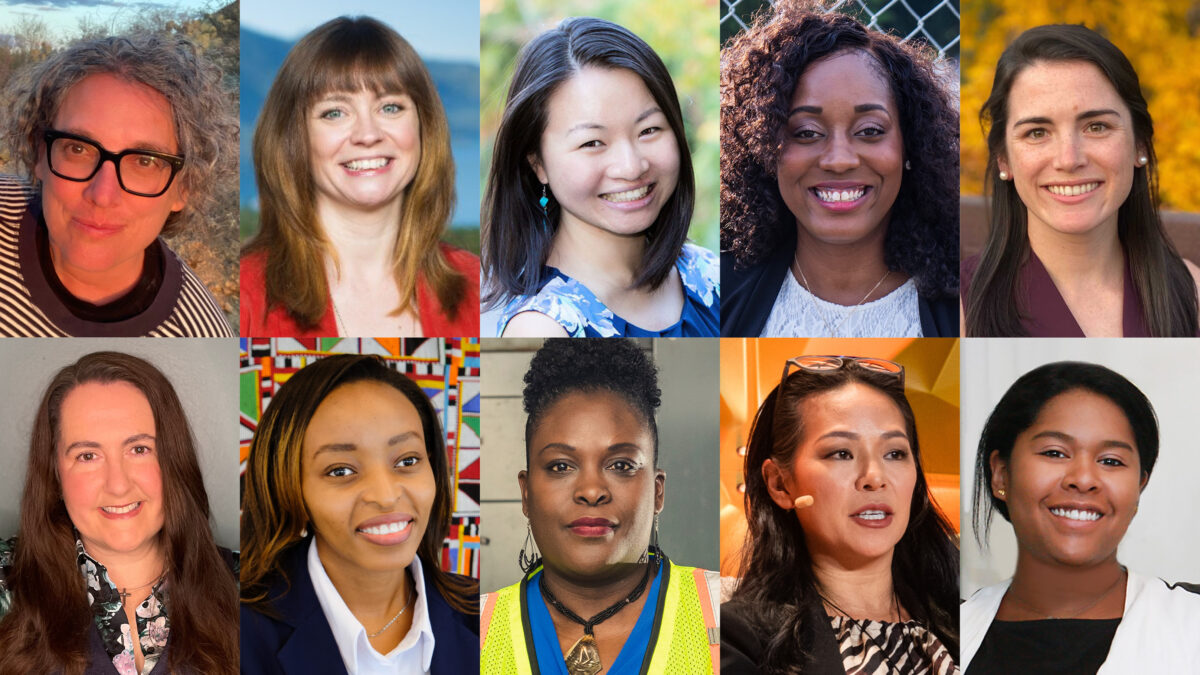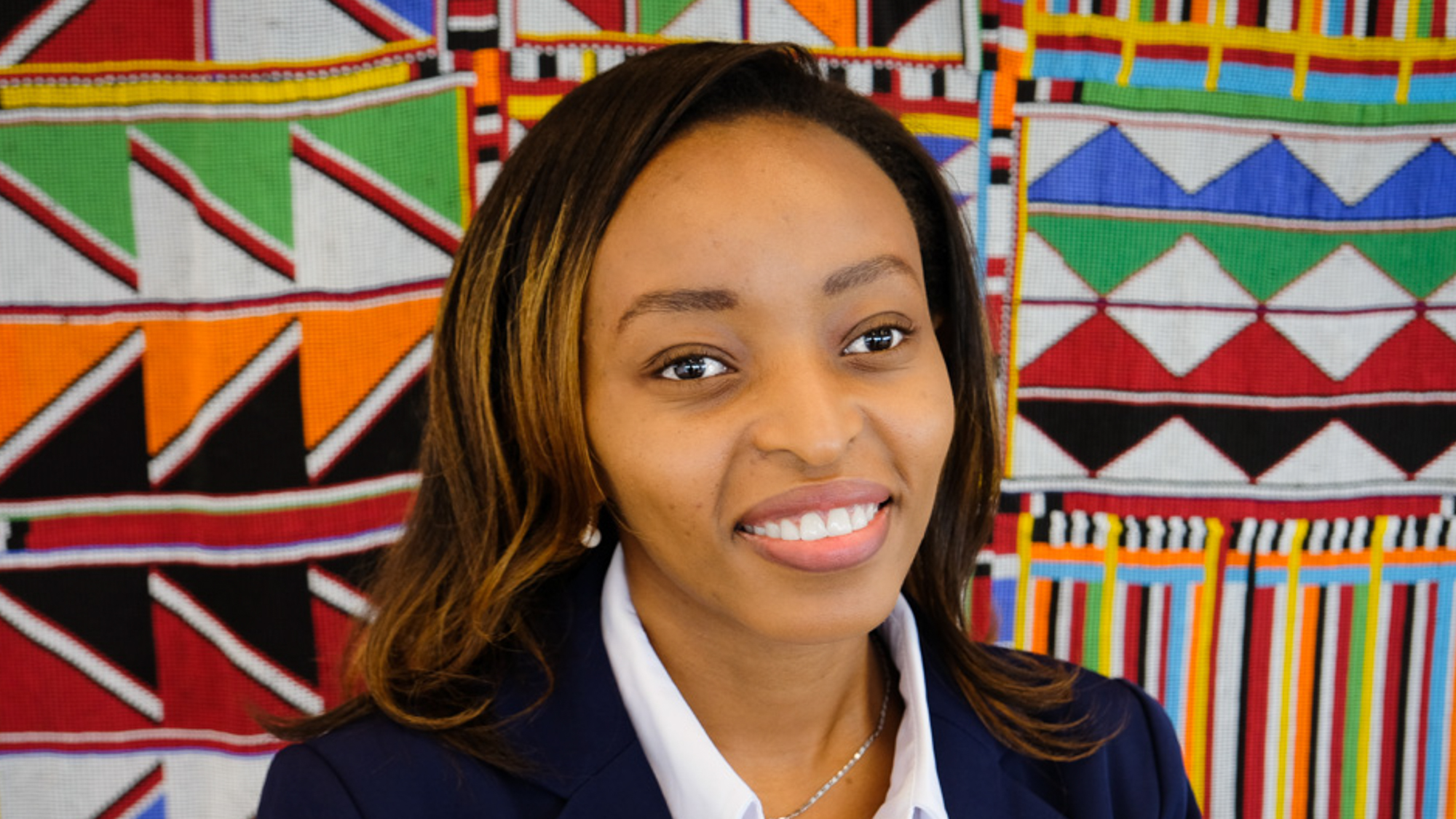What has the previous generation of sustainability professionals overlooked? Integrating environmental justice in business practice.
Over the past two years, I have asked virtually every corporate sustainability professional I’ve met or interviewed to discuss how environmental or climate justice is part of their strategy or climate action. Yes, there’s technically a difference between the two concepts, the latter focuses on embracing community-led solutions to climate change.
Almost without exception, they’ve pointed to their company’s efforts to improve the diversity, equity and inclusion of their internal workforce or to donate money to historically Black universities and colleges — or the dozens of other important issues related to racial relations that require attention.
With due respect, while those initiatives are necessary for every corporation to address holistically — and while some include a justice component or acknowledgement — that answer misses the mark. The reality is that the predominantly white sustainability profession has historically done a poor job of considering environmental justice as a central part of decision-making and in engaging credibly on climate justice.
The perspectives of the Emerging Leaders who attended GreenBiz 23 last month are particularly telling. We asked this cohort of individuals, who identify as Black, Indigenous or people of color, to answer: What has the previous generation of sustainability professionals overlooked that you would prioritize? Many of them explicitly mentioned environmental justice.
“While advancing environmental justice has traditionally been left to the public and NGO sectors, companies have an important role to play,” observed Harvard University senior Charles Hua, who is earning a bachelor’s degree in statistics and mathematics and a master’s degree in statistics, with a focus on climate and energy policy. “They should seek to eliminate environmental injustices directly or indirectly caused by their operations and broader influence, then pursue opportunities for further value creation by investing in and engaging more with historically underserved communities, while contributing to a greener and more inclusive economy.”
“The reality is that the predominantly white sustainability profession has historically done a poor job of considering environmental justice as a central part of decision-making and in engaging credibly on climate justice.”
That makes my decision to narrow selections for this year’s Badass Women list to individuals spearheading the integration of environmental justice into their company’s sustainable business practices all the more timely. Hundreds if not thousands of women dedicate their lives to climate justice on community frontlines as part of foundations, nonprofits and activist organizations. But it was depressingly tough to find individuals who represent this passion and perspective within the business world as a core part of their job.
All the more reason to celebrate these 10 women, who represent the vanguard of what’s possible when environmental justice considerations are married with a business plan.
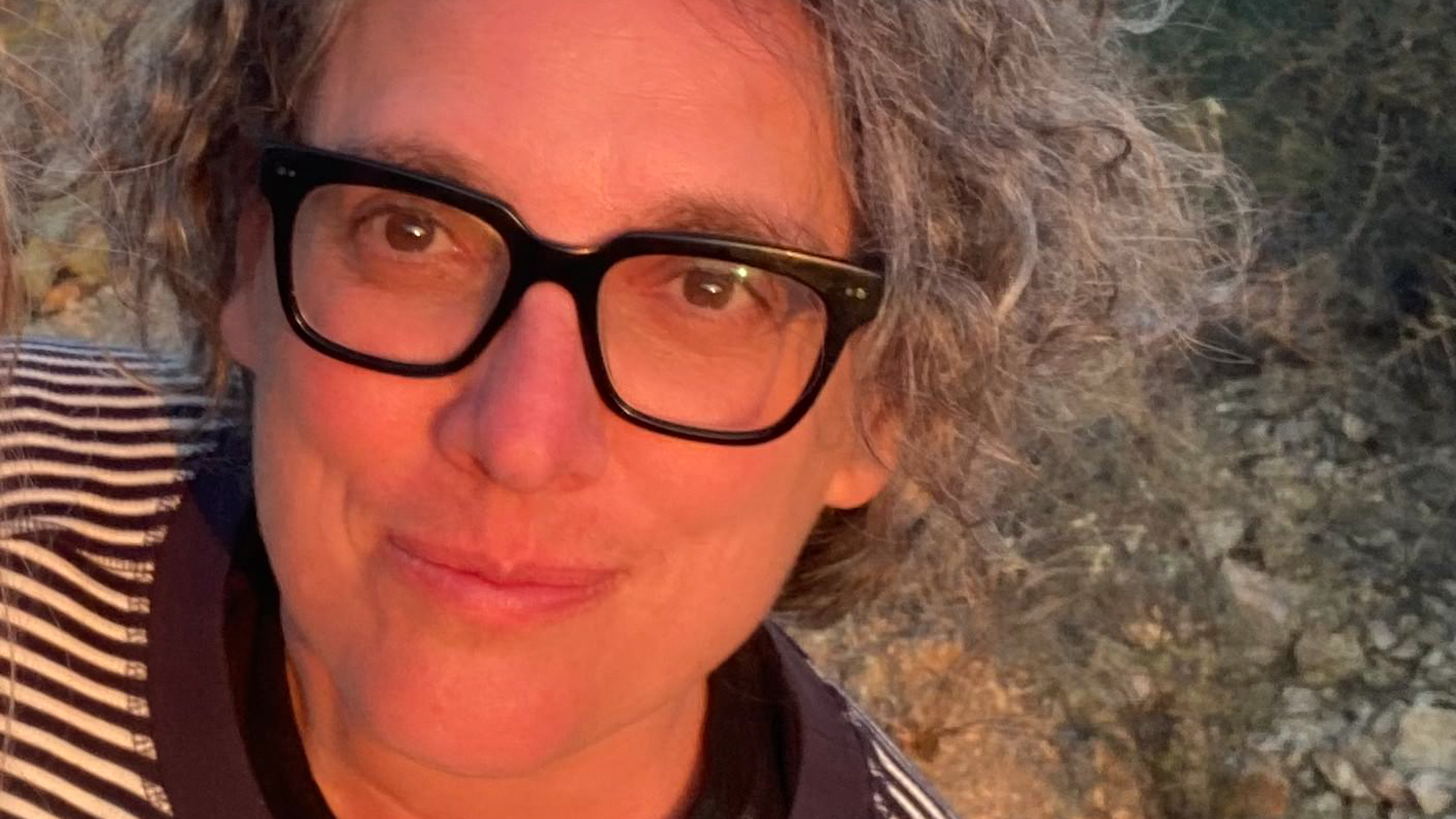
Jenny Carney
Senior Vice President of Sustainability, Energy and Climate Change, WSP
Professional engineering services firm WSP is one of the organizations supporting and building the Just Transition PowerForce, self-described as a collaborative of environmental, finance, energy, workforce and climate justice leaders — and Senior Vice President Jenny Carney is its key representative.
One goal is to encourage alignment of corporate investments, such as renewable energy contracts, with the climate resilience goals of frontline communities. Carney’s other activities include serving as a member of the Social Equity Working Group for the U.S. Green Building Council since 2016.
“In consulting across sectors with different corporate sustainability teams, I see an earnest and expanding appetite from companies ready to embrace social justice imperatives,” Carney said in a statement. “The tools and resources created with the Just Transition Powerforce will help direct this interest into the investments and partnerships that frontline communities actually want and need.”
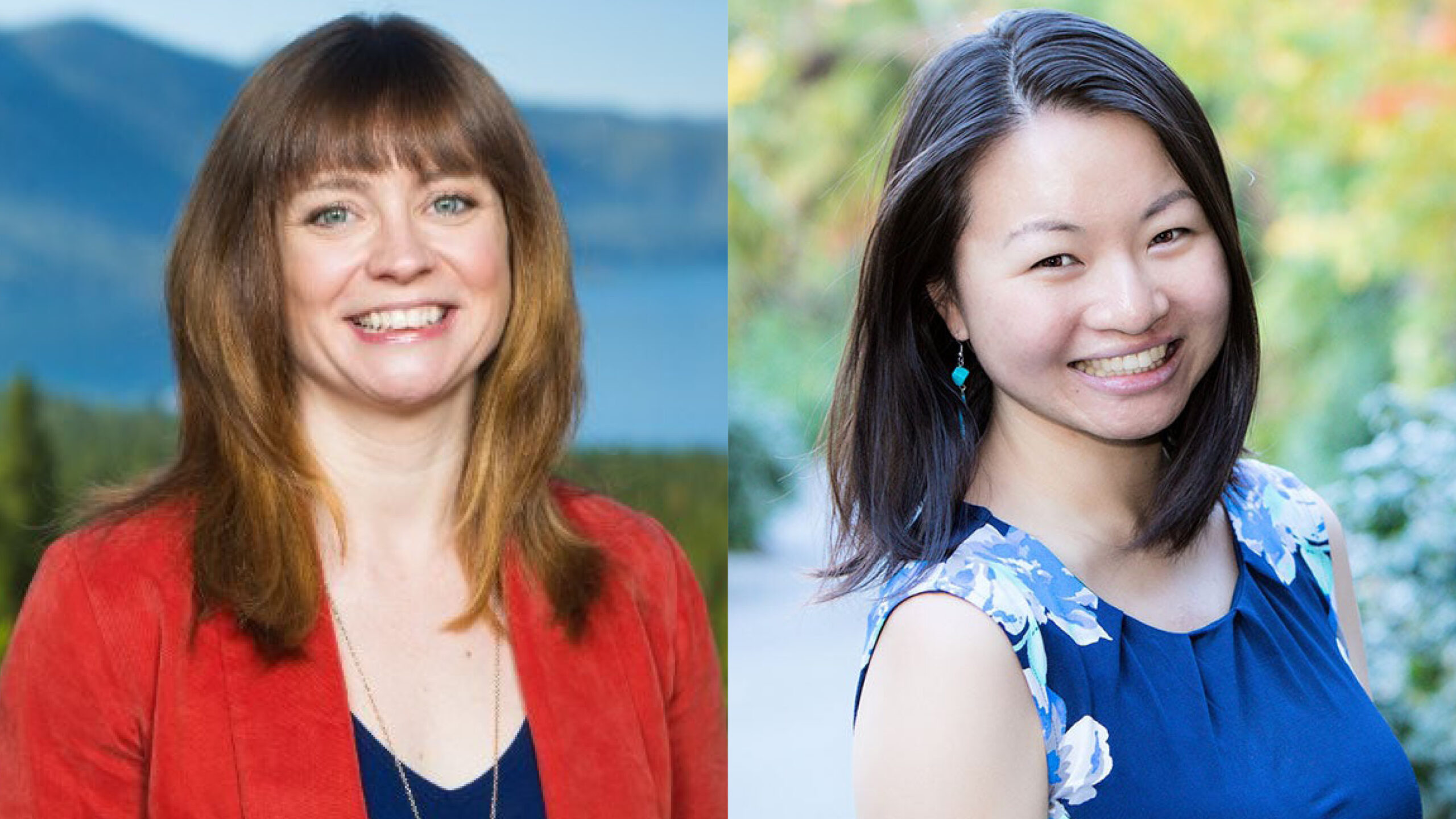
Danielle Decatur
Director of Environmental Justice, Microsoft
Bonnie Lei
Head of Environmental Justice, Employee Engagement and Ecosystems, Microsoft
Microsoft has been refreshingly vocal about its work on climate justice, which it began operationalizing in 2020 as part of its renewable energy purchases, and which has been led in large part by Danielle Decatur and Bonnie Lei.
With their guidance, Microsoft has signed two substantial power purchase agreements bringing clean power to underserved communities — totaling 750 megawatts, not a token amount. The more recent contract is with Black-owned developer Volt Energy. (More on that relationship here.)
I’d be remiss not to mention Microsoft’s partnership with the Just Transition Powerforce, in which both women participate, influencing support for projects ranging from workforce training for climate adaptation solutions to the development of urban forests and farms. Part of Lei’s role is espousing these principles among both employees and business partners, and the former AI for Earth program lead also has responsibility for the company’s land conservation commitments.
“Hundreds if not thousands of women dedicate their lives to climate justice on community frontlines as part of foundations, nonprofits and activist organizations.”
“To the extent that Microsoft can create co-benefits for these communities, and have that support for operations there, I think it’s important for longevity of the business,” Danielle Decatur said at VERGE last year. “In doing this work, we need to move at the speed of trust.”
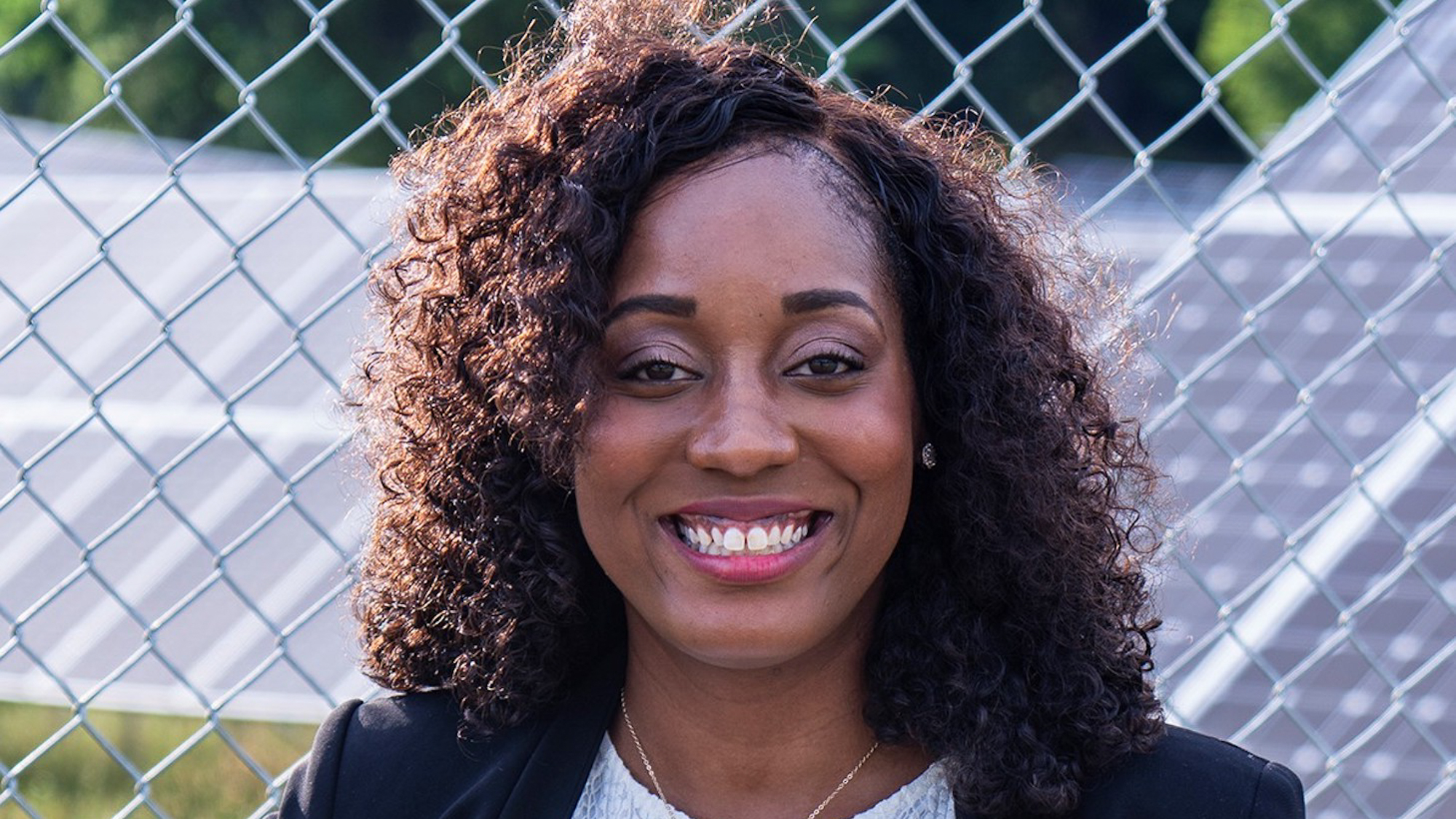
Krystal Hansley
Founder and CEO, WeSolar
As the first Black woman to co-found and lead a community solar company, WeSolar, Kristal Hansley is prioritizing development deals that bring clean energy to inner-city communities that typically don’t have access.
An example is the contract WeSolar announced in April with the University of Maryland Medical Center, which will bring 8 MW of solar electricity for both its facilities and its neighbors in Baltimore. Staffers of the medical center who earn below a certain income threshold will be able to buy the clean power for their homes at a discount of up to 25 percent. Halsey is a Howard University graduate with substantial policy experience, and a former staffer for the late Senate Majority Leader Harry Reid.
“Our company’s mission is about equity,” Halsey said in a statement. “Our main goal is to reduce the bills of low-to-moderate-income customers by at least 25 percent.”
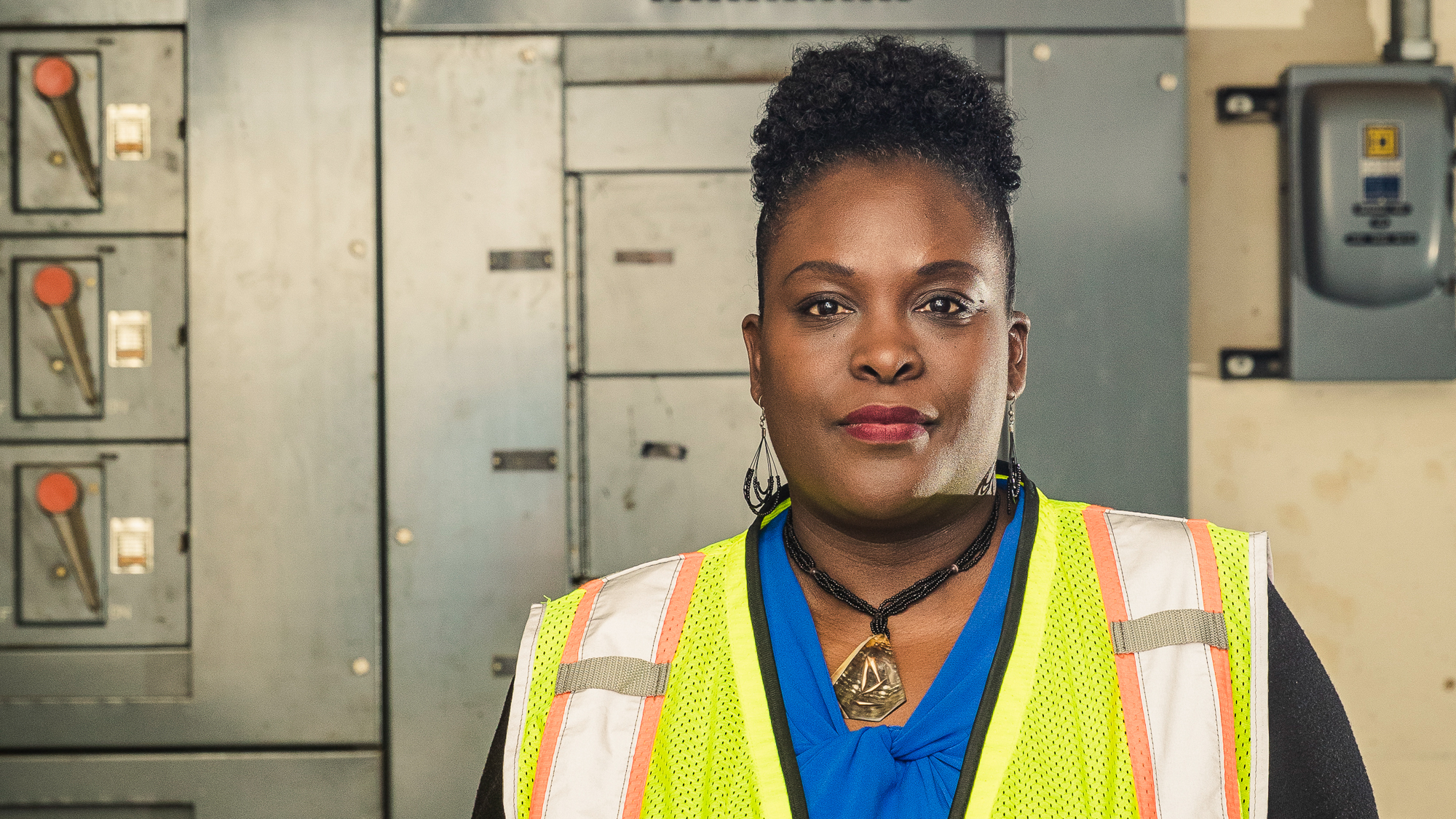
Tonya Hicks
Founder, President and CEO, PowerSolutions
Founder and Managing Principal, Women Do Everything
It’s an oft-cited statistic that women are under-represented in the U.S. energy sector, including renewables — holding barely one-third of the jobs in clean power, despite representing about 47 percent of the overall workforce. In electrical contracting, the average is even worse: just 9.3% of electrical contractors are women.
Entrepreneur Tonya Hicks is on a mission to change that, as part of the transition to a just, clean economy. The first Black woman to become a journeyman in the International Brotherhood of Electrical Workers in Mississippi, Hicks started her own contracting firm in Atlanta more than two decades ago. Power Solutions now specializes in clean energy and smart city technologies. “Being a boss is giving other people an opportunity to make money and to help them grow,” she told the New York Times. “Not until you are building up another person are you a true leader.”
In that vein, her latest venture, Women Do Everything, offers career development and training that prepares women, particularly women of color, for careers in traditionally male-dominated fields such as construction. (Learn more about her on this recent podcast.)
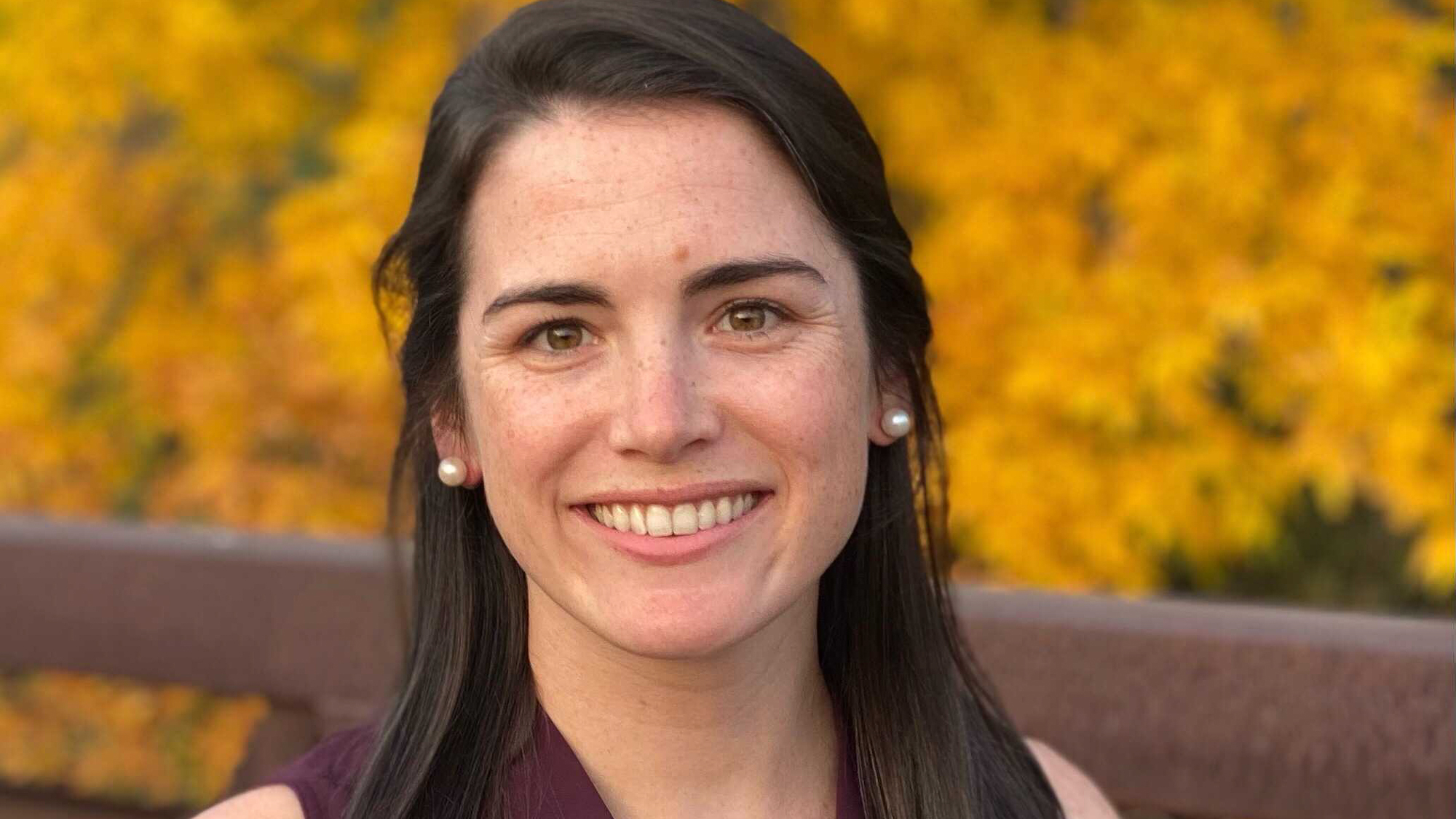
Megan Lorenzen
Senior Manager of Sustainability, Salesforce
As one of the architects of the Salesforce renewable energy procurement strategy, Megan Lorenzen helped orchestrate an unusual contract to buy about 280,000 megawatt-hours of clean power over the next eight years from small projects in Brazil, India, Southeast Asia and Sub-Saharan Africa. The projects wouldn’t have been possible without the company’s support.
“We are looking to procure renewable energy where we can have the most impact,” Lorenzen told me. “We see a dramatically different impact on carbon emissions in different grids and at different times of day.”
Lorenzen was a co-author of a “More Than a Megawatt,” a 2020 position paper intended to advocate the use of climate justice and other considerations when evaluating renewable energy projects.
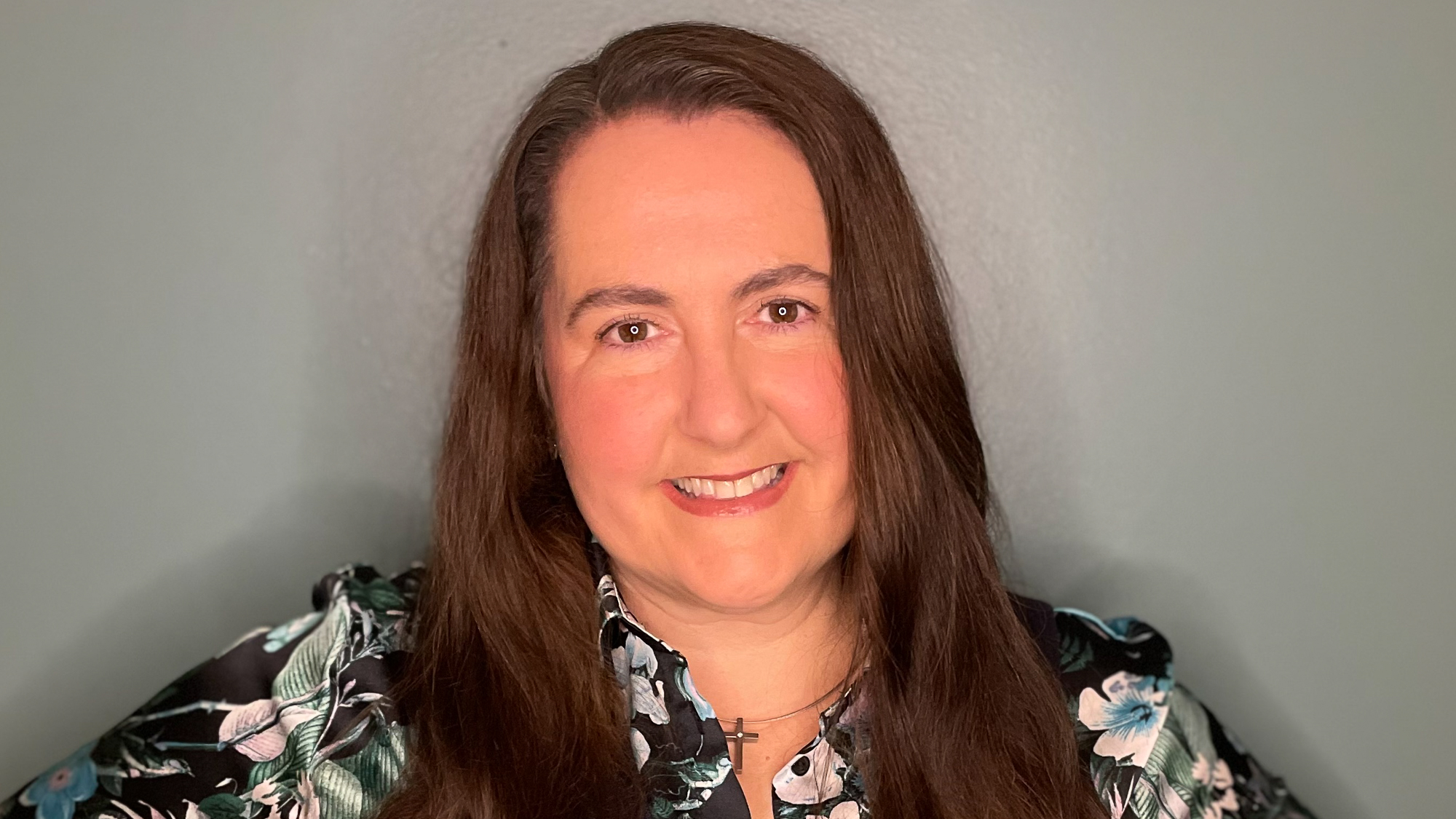
Michelle Moore
CEO, Groundswell
The former chief sustainability officer for President Barack Obama, who started her career at Interface, has been talking about climate justice — particularly energy equity — for decades.
As CEO of nonprofit Groundswell, Moore has been instrumental at garnering corporate support for community solar projects and creating resilience centers in underserved and predominantly Black communities, including Baltimore and the complex of historically Black colleges and universities in the Atlanta metro region.
Raised in LaGrange, Georgia, Moore joined the board of the Tennessee Valley Authority — which serves more than 10 million electricity customers in seven southeastern states — in January. She has a particular passion for ensuring that rural communities participate in the just, clean economy transition, a view explained in her August book, “Rural Renaissance: Revitalizing America’s Home Towns Through Clean Power.”
“As the first Black woman to co-found and lead a community solar company, WeSolar, Kristal Hansley is prioritizing development deals that bring clean energy to inner-city communities that typically don’t have access.”
Annette Mumbi
Associate Director, CrossBoundary Energy Access
African financier Annette Mumbi leads investment company CrossBoundary’s collaboration with Engie Energy Access Nigeria — a relationship that will invest $60 million in building mini-grids that will bring clean energy to more than 150,000 people in Nigeria. The company aims to raise up to $150 million in blended project finance, and its partners include Bank of America and the Microsoft Innovation Fund.
Prior to joining CrossBoundary almost three years ago, Mumbi — trained as a “financial engineer” — focused on analyzing African companies and recommending investments for Kenya’s leading pension fund manager with $3 billion in assets.
“Our agreement with Engie is one more milestone towards closing the gap on more than 600 million people in Africa who lack access to electricity,” Mumbi said.
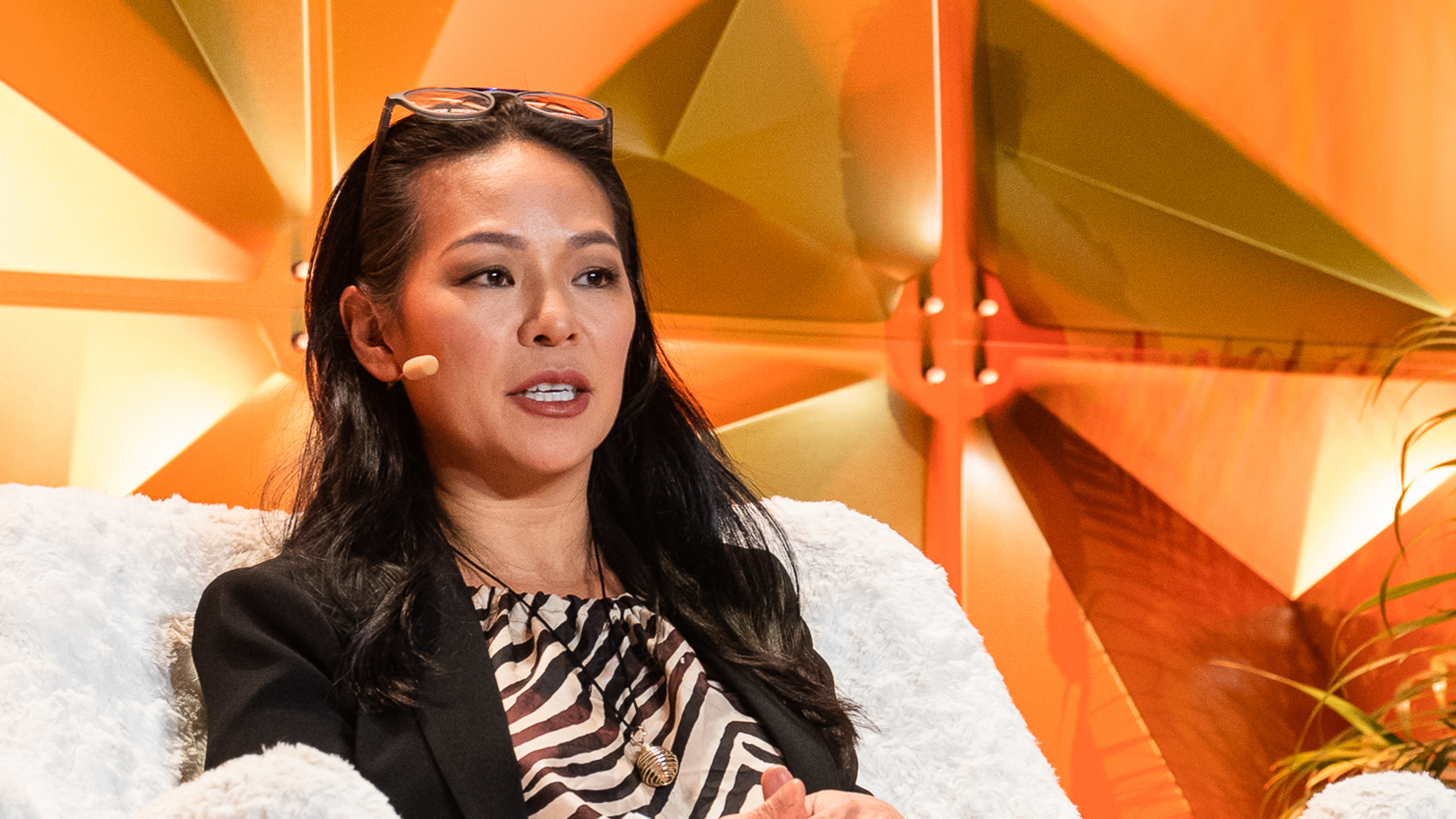
Vien Truong
Director of Engagement, Nike Global Sustainability
Growing up as the youngest of 11 children with her Vietnamese immigrant family in East Oakland, California, Vien Truong experienced firsthand the impact of misguided development and lax environmental policies.
Among her many accomplishments, Truong co-led the coalition that helped pass a California law establishing a $1.5 billion fund for “disadvantaged communities most harmed by fossil fuel pollution.” Her work on climate equity as CEO of Dream Corps and director of Green For All earned her recognition as a White House Champion of Change.
In her role at Nike, which she joined two years ago, Truong leads engagement and advocacy related to supply chain labor. The team is also charged with ensuring Nike’s sustainability plans align with the needs of frontline communities around the world.
“It’s easy to talk about what needs to happen from the outside in, but let’s actually begin to do the work of finding out how we move forward,” Truong said in a 2021 interview. “For me, NIke was the perfect place,” she added, pointing to the company’s revived climate leadership under CEO John Donahoe. “I am so delighted to be among a team of the best in the country to figure this out together. It’s kind of like being part of the ‘Climate Avengers.'”
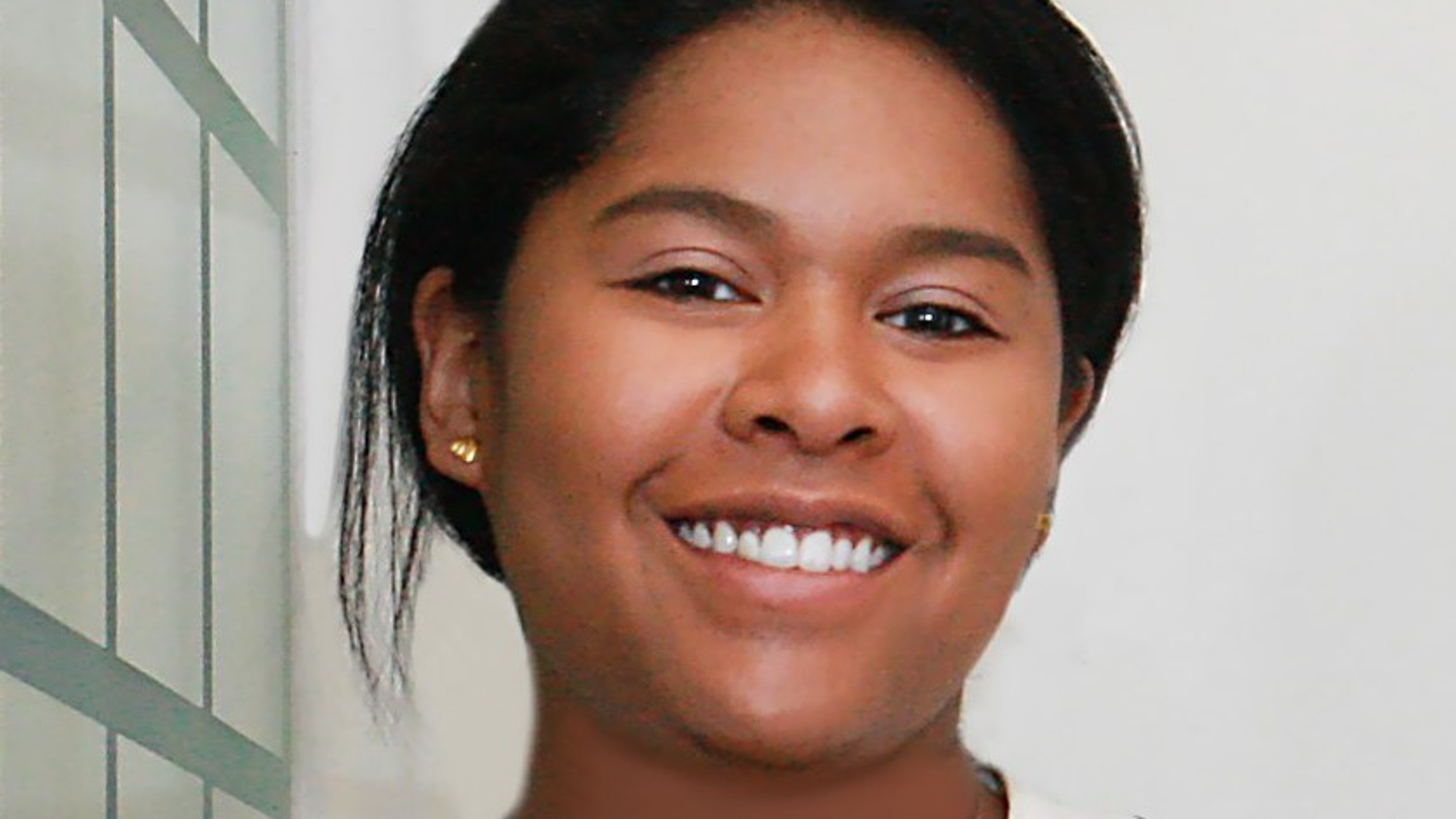
Michelle Waring
Steward for Sustainability and Everyday Good, Tom’s of Maine
With one of the more intriguing titles on this year’s list, Michelle Waring spearheads Tom’s of Maine’s long-time commitment to sustainability. As just one data point, the Certified B Corporation was the first to release a recyclable toothpaste tube, back in 2019, ahead of large consumer products companies.
Waring, who has been with Tom’s of Maine since August 2021, previously was a director of entertainment and brand partnerships with the Natural Resources Defense Council. She’s behind the company’s $3 million Get Into Nature program, aimed at reaching 150,000 children from underrepresented communities.
One of her latest environmental justice initiatives is the new Tom’s of Maine Incubator, a seven-month program that provides funding, mentorship and support to young climate leaders who identify as Black, Indigenous or people of color. The inaugural class includes five young leaders making a name in the environmental justice movement, including a Badass Woman in her own right — Sanjana Paul, the electrical engineer and physicist who founded The Earth Hacks Foundation.
This article originally appeared on GreenBiz.com as part of our partnership with GreenBiz Group, a media and events company that accelerates the just transition to a clean economy.
This is the fifth year GreenBiz has curated the Badass Women list to coincide with International Women’s Day. Scan the 2022, 2021, 2020 and 2019 editions for more inspiration.


